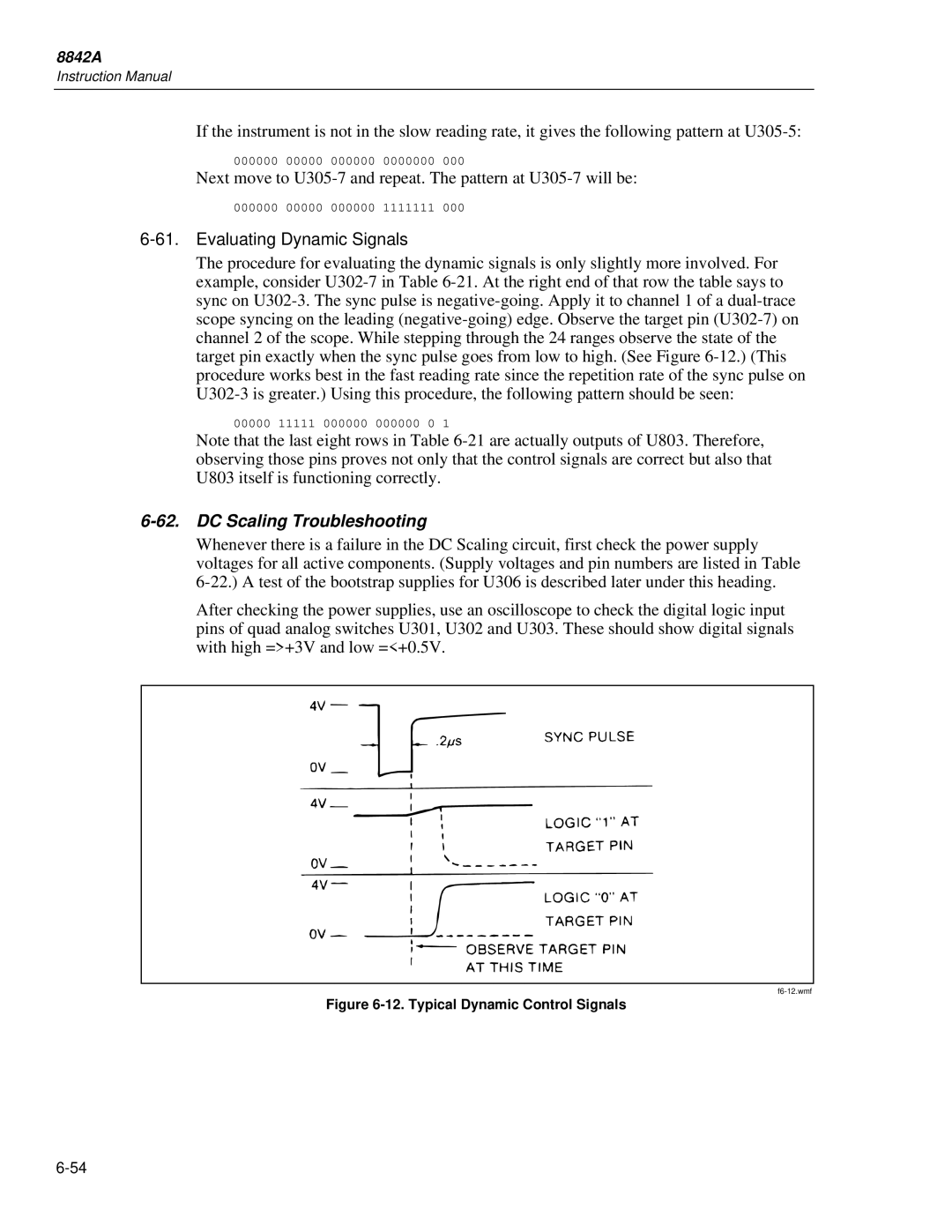
8842A
Instruction Manual
If the instrument is not in the slow reading rate, it gives the following pattern at
000000 00000 000000 0000000 000
Next move to
000000 00000 000000 1111111 000
6-61. Evaluating Dynamic Signals
The procedure for evaluating the dynamic signals is only slightly more involved. For example, consider
00000 11111 000000 000000 0 1
Note that the last eight rows in Table
6-62. DC Scaling Troubleshooting
Whenever there is a failure in the DC Scaling circuit, first check the power supply voltages for all active components. (Supply voltages and pin numbers are listed in Table
After checking the power supplies, use an oscilloscope to check the digital logic input pins of quad analog switches U301, U302 and U303. These should show digital signals with high =>+3V and low =<+0.5V.
